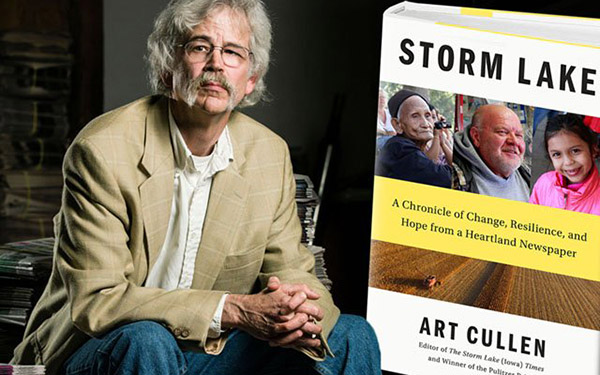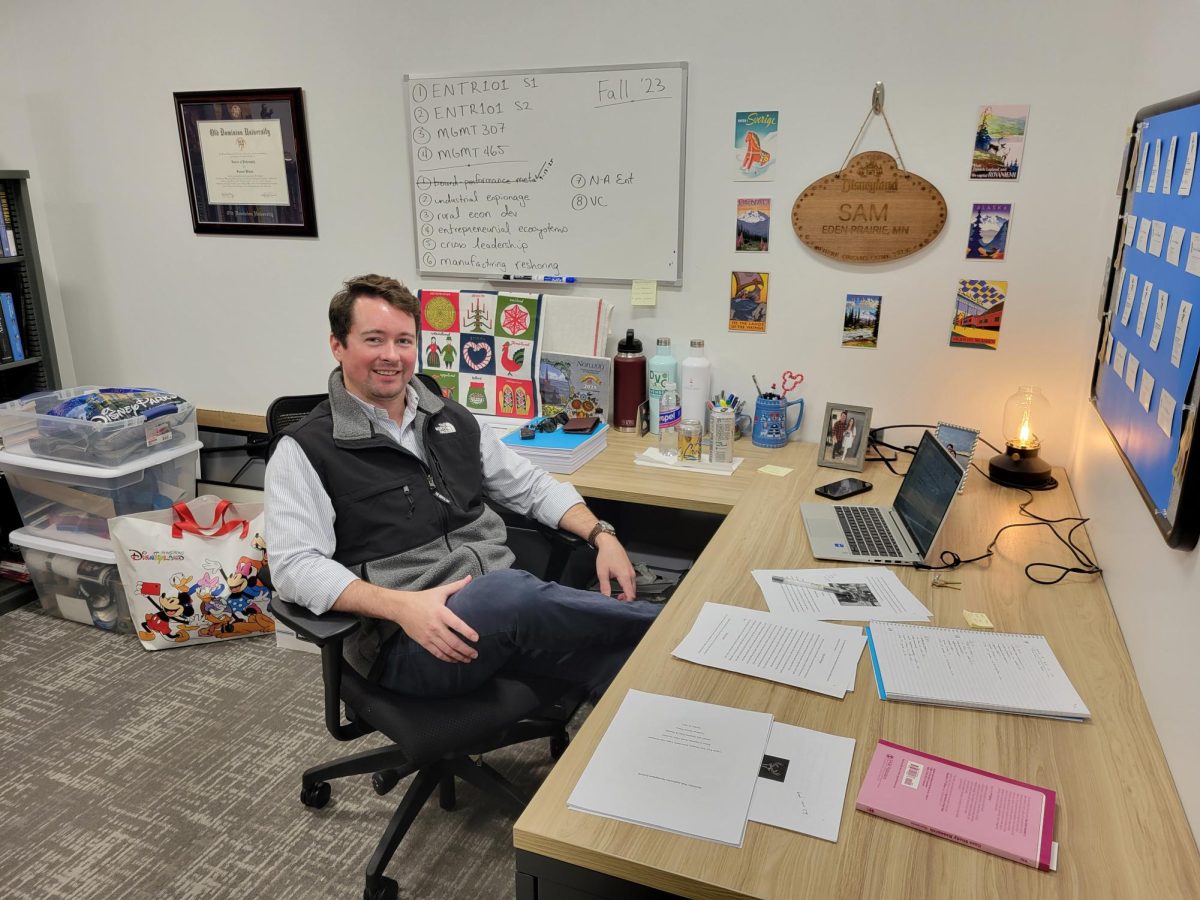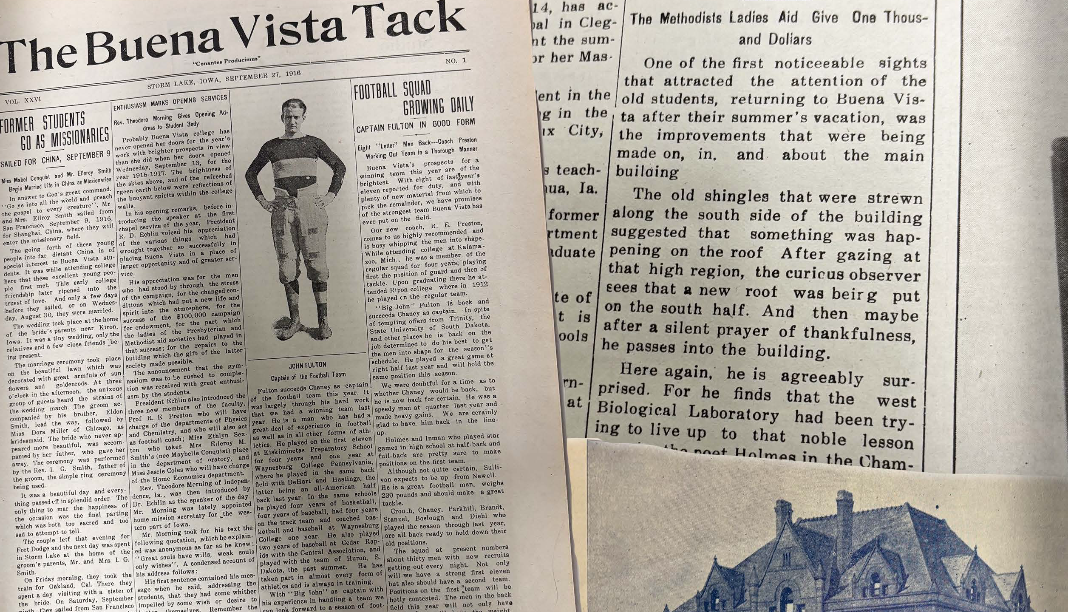A Conversation with Art Cullen: Watchdog Journalism in the Heartland

Photo Courtesy of BVU News
November 20, 2018
On Thursday, Nov. 15 at 7:30 p.m., Pulitzer Prize winner Art Cullen, editor of The Storm Lake Times, held an informal conversation about journalism, politics, and the unique qualities that make Storm Lake a place to pay attention to for the rest of the country. Dr. Andrea Frantz, professor of digital media and national executive director for the Society of Collegiate Journalists, was the moderator for the discussion.
A significant portion of the discussion centered on content discussions and actual readings of Cullen’s book, “Storm Lake: A Chronicle of Change Resilience and Hope from a Heartland Newspaper.” This book is written in short pieces, similar to his columns or editorials.
“It’s kind of like sitting down and reading a newspaper over a few days,” Cullen explains.
In reviews, it is emphasized that this book truly proves why Cullen’s writing is powerful in its impact. Described as a “prose that is almost poetry,” Cullen’s book illustrates what is happening in Storm Lake in relation to its importance to the rest of the country.
Cullen’s favorite response to the book is gatherings such as this one where he is able to actually interact with people who acknowledge what is occurring in Iowa. He aims to show that Iowa is headed in the wrong direction but observes the hope that is present throughout the Storm Lake community.
The book features great stories about Storm Lake, including its resilience, climate change adaptations, different languages, and biodiversity. There are stories of Storm Lakers themselves featured in the book, capturing the amazing snapshots of the area’s most colorful moments.
Cullen’s book also addresses his concerns about a trend in the state that started long ago.
“We weren’t here first, we’re perpetuating an ethnic cleansing that started in the 1850s. We’re attempting to put cages at the border, stealing indigenous people’s land, a truth that we grapple with and don’t want to admit,” Cullen says.
As Cullen began his readings from his book, he continued to drive home the main points of his book and his goal in writing it. In particular, the challenges to American press today, including the difficulty the press faces in maintaining its essential role as watchdog, were discussed.
Cullen argued that the best way for a news source to maintain credibility is to keep reporting facts day in and day out: the truth will eventually win out. Cullen has faith that the American people will arrive at the truth, even though the newspaper industry is under economic and political assault.
“We gotta have faith that the American people will throw the bomb out like Richard Nixon and will stamp out this ignorance,” he says.
Frantz chimed in on the issue as well, stating that the people are afraid to ask tough questions because tough does not sit well with Iowa nice.
“We’re not always comfortable with being uncomfortable,” Frantz elaborates.
The Storm Lake Times addresses this issue. They cover the facts, but since “not everything is doom and death and destruction,” according to Cullen, they’ll print recipe columns and feature friendly people of the town. However, Cullen believes that most people want to be given all of the information they need to formulate their own opinions in order to live their lives.
An additional portion of discussion, with readings sprinkled in throughout, featured the topic of social media and cell phones. Frantz and Cullen discussed the technological dependency of the current generation, and a trend of treating social media sites such as Facebook as news sources. The two argued that this can cause a lot of false information to spread quickly.
Other topics were also mentioned, such as where the country will be headed in 2020 and which way the pendulum will swing in the state of Iowa for future elections. Additionally, the tension between agriculture and the environment and how things have changed in that arena was analyzed, with financial issues as a point of emphasis.
Cullen’s presentation showcased his vast knowledge and experience in journalism, as well as his fantastic writing skills in making the jump from journalism to book writing. The hour the discussion was held gave only a small glimpse at Art Cullen’s amazing journalistic expertise.
Frantz concluded the discussion with a final note.
“I’d like to thank Art Cullen for your dogged dedication to democracy.”







